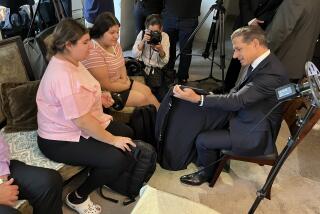First Step to Learning Is Starting School on a Healthy Note
Most educators would probably agree with the ancient Greeks that a sound mind and sound body go together. Students simply don’t learn well when they’re not healthy.
As you help prepare your child for the start of school, make sure that his or her body is ready too.
Depending on your son’s or daughter’s age, some specific health concerns should be addressed.
If your child is about to enter kindergarten or first grade, he or she will need the immunizations required by state law for enrollment in school.
Four doses of the diphtheria/pertussis/tetanus, or DPT, vaccine are required, with the final dose given after age 2.
Three doses of the polio vaccine are needed, and that last dose must also occur after age 2.
In addition, the child must have one dose of the measles/mumps/rubella, or MMR, vaccine on or after the first birthday.
However, there is a “recent recommendation, because of the (measles) outbreak, for everyone to get a second dose of MMR vaccine at about 4 or 5 years old,” said Glen Fujimoto, a health program coordinator for the County Immunization Project.
A skin test for tuberculosis, or TB, is also needed for children entering kindergarten and for all students new to California schools.
Both the Tine and Mantoux tuberculosis tests are now available, but only the Mantoux is accepted by schools--so ask for it by name. This test must be done within 12 months of school enrollment.
Incidentally, tuberculosis testing is suggested for everyone every two or three years because of a significant increase in cases in Los Angeles County--33% since 1987, according to the county Public Health Department.
The Haemophilis Influenza Type B, or HIB, vaccine, which prevents meningitis, is optional. But it’s a good idea, Fujimoto said, because children under age 5 are most vulnerable to this potentially fatal disease.
Your child can receive all four vaccines and the Mantoux test for free at any of the county’s health centers. Call (213) 419-5307 for locations.
But whether you visit a health center or a private physician, go prepared. Bring a record of the child’s immunizations “so the (health professional) knows where you left off and can determine what is needed next,” Fujimoto said.
Tell the person giving the immunizations beforehand of any problems or reactions that the child has had to previous injections.
Make sure the health professional gives you a signed and dated immunization record card, which the school will demand for admission.
Finally, bear in mind a recent change in state law that eliminates grace periods.
“Either the child’s record is complete . . . or the child should not be enrolled,” Fujimoto warned.
For older children, a visit to the doctor for a checkup is also a good idea, even though the schools do not require it. Procedure varies among doctors, but the exam should include testing of the heart, lungs and blood pressure.
Most schools periodically test vision, hearing and spinal curvature. But if your child’s school does not, make sure your doctor does.
A hemoglobin count is especially helpful for teen-agers, said Dr. Eleanore Meyer, a pediatrician in Santa Monica.
“If you’re low in hemoglobin and iron, your brain does not function as well,” she said. “Your attention span may be decreased.”
Checking cholesterol is also wise, Meyer said.
Another dose of the tetanus vaccine is advisable around age 14, said Dr. Loreta Matheo, also a pediatrician in Santa Monica.
“That’s an age group that (physicians) don’t see a lot,” Matheo said, “but they’re riding bikes, skateboards and roller blades, falling and cutting themselves.”
Doctors disagree on how often a physical examination is needed. Some say annually, but, Matheo said, “starting about (age) 8, I switch over to every two years.”
More to Read
Sign up for Essential California
The most important California stories and recommendations in your inbox every morning.
You may occasionally receive promotional content from the Los Angeles Times.










